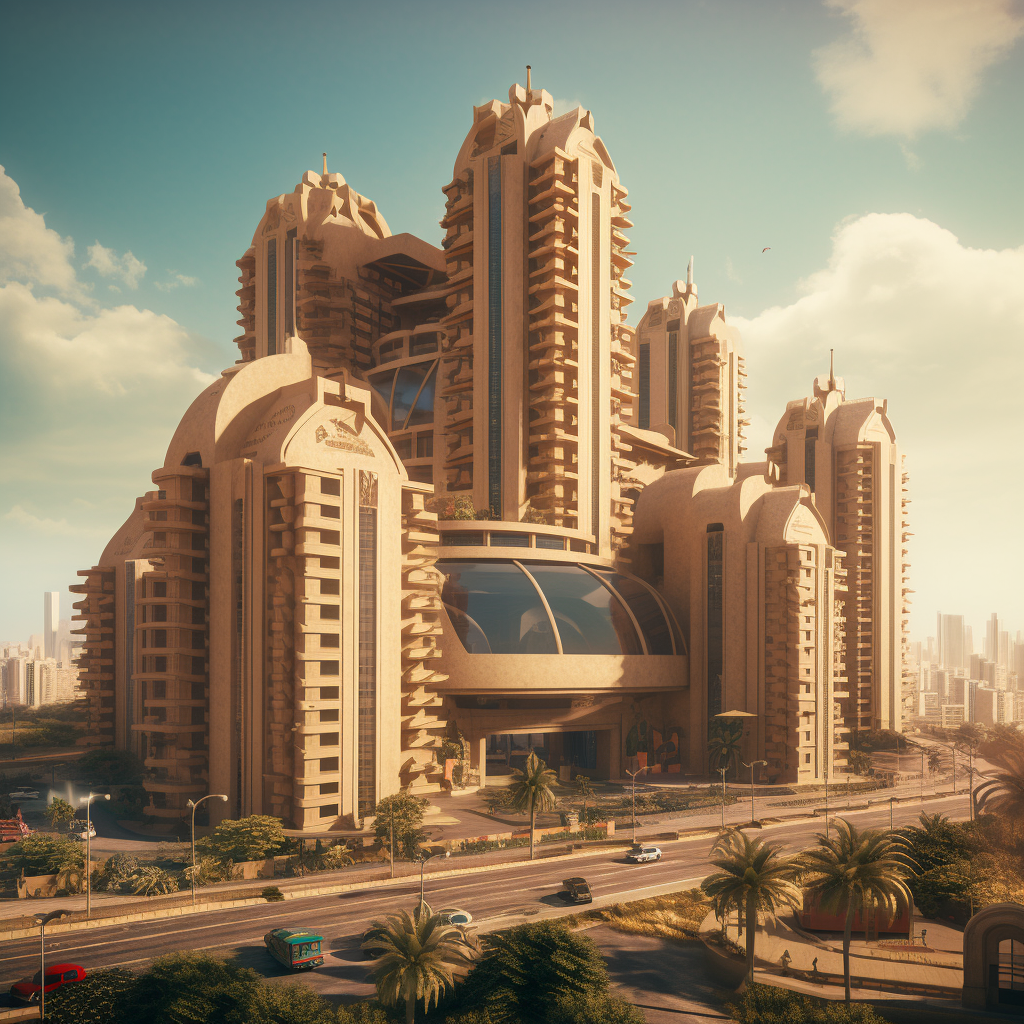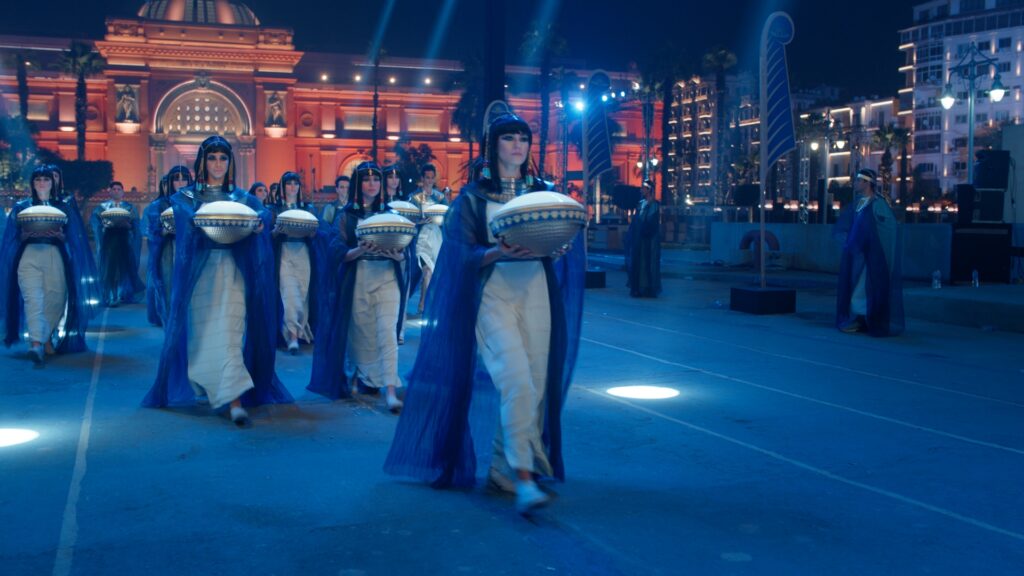Exploring Egypt’s Vibrant Past, Present, and Future
After decades of soul searching to re-define its National identity, Egypt is now constructing its new administrative Capital —The New Cairo City.
A City that promises modernity and prosperity with a delicate balance between the Country’s urban-progress and preservation of its ‘cultural heritage’.
Following decades long contemplation, Egypt has finally set its vision for joining the ranks of other civilization-states like China, Russia, and India. It seeks to join the emerging club of Nations that centre historical and cultural tradition in their policy and governance structures.

The Egypt’s civilization-state is the prism through which Western Nations should view and understand Egypt’s domestic and foreign policy moves.
However, as the New Cairo City rises, it also invites contemplation upon the shifting landscape of Egypt’s Sharia Laws and the timeless essence of its Islamic identity.
While the city’s development promises modernity and prosperity, one cannot help but ponder the ramifications, and question whether the city’s growth will bolster or erode the very foundations upon which this ancient civilization rest?
Return of ‘Pharaohs’ – The Golden Parade
In April, 2021, Egypt hosted a unique event called the “Pharaohs’ Golden Parade,” where 22 mummies of ancient Egyptian kings and queens were moved from the Egyptian Museum to the new National Museum being developed in the New Cairo City.

The Pharaohs’ Golden Parade had a cultural and touristic objective, but it also symbolize Cairo’s new ideological discourse and aims to build a civilization state with its distinct cultural, historical, and political narrative.
Beyond the Parade
While the Pharaohs’ Golden Parade was the most symbolic visual representation of Egypt’s envisioned civilization-state yet, there is a broader systematic effort to embrace pharaonic symbols in the new cities currently under construction — from the ankh-shaped presidential palace to the new people’s square, and from the new octagonal headquarters of the Ministry of Defense to the new presidential palace on the North Coast.
Not only this, Ministry of Education in the New Cairo city has announced the teaching of hieroglyphics in schools, which indicates how serious the government is about wanting to integrate pharaonic identity into the educational system.
What is a Civilization-State?
Unlike the Westphalian nation-state, the civilization-state refers to nations with a distinct social and political nature that stems from their cultural unity and historical continuity. In Bruno Maçães’ view, the civilization-state is organized around culture rather than politics and ought to protect its cultural traditions.
The rise of the civilization-state is linked to the ascendancy of Asian powers that challenge the current Western culture and value system that has dominated the world stage since European hegemony.
Maçães argues that, “Nation-states are a Western invention, naturally vulnerable to Western influence. Therefore, Civilizations are an alternative to the West.”

The 2011 Tahrir Revolution represented a unique moment in Egypt’s ideological discourse with the rise of many political narratives that have competed to define Egypt — mainly, the Muslim Brotherhood and the Nationalists.
Fast forward to 2021, Egypt is a nation of 100 million that has been struggling to emerge from the political upheaval, social strife, and Islamic insurgency in Northern Sinai that has dominated the Post-Tahrir Revolution period.
Nowadays Egypt is characterized by its public disagreements with the local religious establishment, its fight with political Islam, and its discomfort with Arabism. The latter two coincided with Egypt’s turbulent relations and open dissent — following the Tahrir Revolution — with the West and its value system that centers individual rights.
Eventually, Cairo started to look into a new model that encapsulates a vision for the new Egyptian republic. To understand today’s Egypt is to acknowledge that Cairo is building its own civilization-state. And if global politics are nearing an era of multipolarity and the rise of the rest, then Egypt’s case is not unique, and civilization-states may in fact represent the new norm.
The Changing Identity of a New Republic
Since 2013, the government in Cairo has been an archenemy of political Islam, both in Egypt and around the region, and has been an outspoken critic of the religious establishment for its refusal to modernize Islam and reclaim the faith from terrorist organizations.
In addition to rejecting the Islamist movements, the government of President Abdel-Fattah el-Sisi spent his first term in office searching for a model that fits his vision for a new Egypt and the republic he is committed to build. Unsurprisingly, Egypt’s pharaonic heritage re-emerged as the foundation for Sisi’s Egypt.
The pharaohs, who once ruled this ancient land, are once again capturing the world’s imagination.
Egypt is leveraging international collaborations to foster urban development and economic growth in the region. One example is the Central Business District (CBD) project in the Egypt’s new administrative capital, being implemented by China State Construction Engineering Corporation (CSCEC).
Located at the heart of the desert some 50 km east of capital Cairo, the Central Business District (CBD) project covers an area of about 505,000 square meters, with 20 commercial and residential skyscrapers as well as supporting municipal infrastructure, among which is the 385-meter high iconic tower, the tallest building in Africa.

The project encompasses state-of-the-art commercial and residential spaces, cutting-edge infrastructure, and vibrant public areas that enhance the quality of life for Cairo’s residents.
The CBD is not only an important project of Egypt’s national rejuvenation plan, but also a flagship project under the framework of China’s Belt and Road Initiative.
In another significant development, Businesses in Egypt are discriminating against women who wear a hijab, discovered a BBC Arabic investigation.
Egypt’s constitution prohibits discrimination based on religion, sex, race or social class. “Never in any era of the ministry of tourism has a decision been issued banning veiled women (from leisure venues).
BBC Arabic’s investigation also found that La Vista, a company with projects in Cairo and several high-end coastal developments, was preventing hijab-wearing women from buying holiday apartments.
Many Egyptian women confirmed that they are facing a difficult summer season as ‘Hijab-free zones’ seem to have soared in popularity. Whoever covers herself is being punished and stripped of their freedom now, according to author Nada Kabil, 30, in a report for USA TODAY.
Despite the country’s predominantly Muslim population (almost 90%), it is strange that Hijab wearing women are facing discrimination and a biased treatment.
It’s a contradiction though not entirely lost on the government, particularly, as upper echelons of Egyptian society have been increasingly taking off the hijab since the Egypt’s 2011 revolution.
While the Egypt’s cultural mosaic is deeply rooted in Islamic heritage, the modern-day challenges persist.









